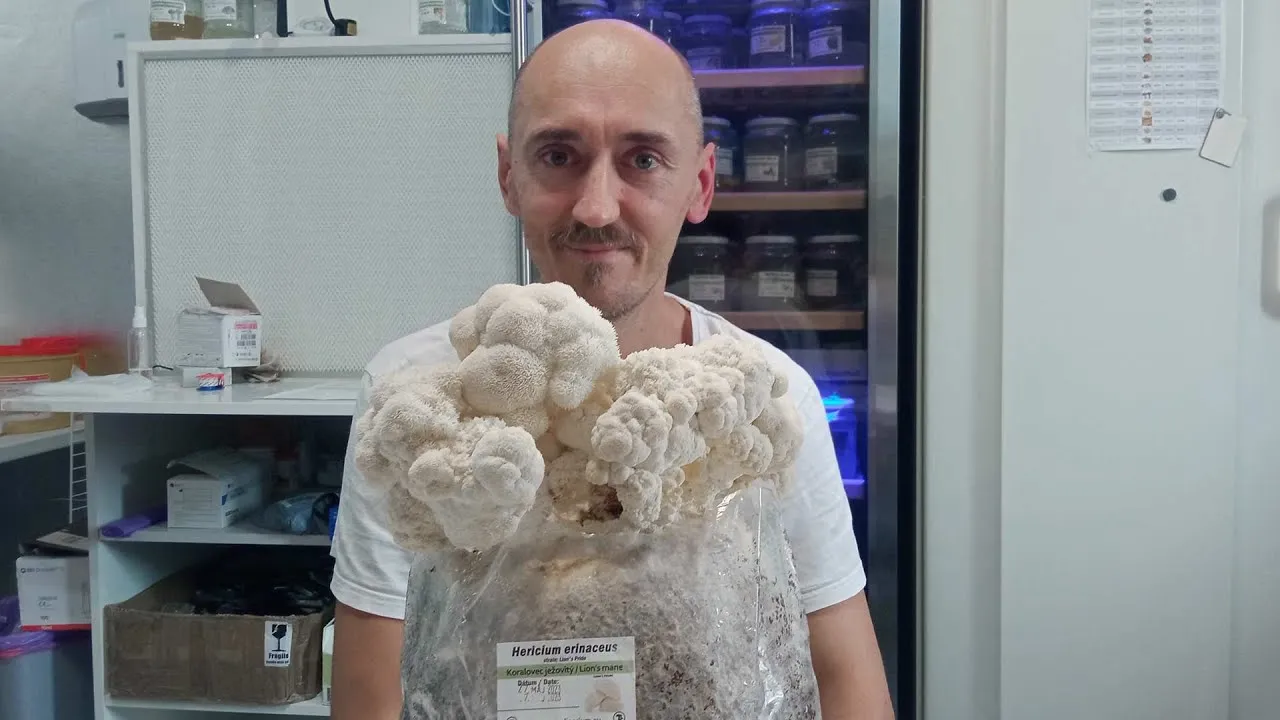We wish Professor Benakhla Ahmed a peaceful retirement, who has been diagnosed with Parkinson’s disease. His contributions to science will always be invaluable. This article explores a promising approach to improving the management of this neurodegenerative disorder: the Lion’s Mane (Hericium erinaceus) mushroom.
Introduction
Parkinson’s disease is a neurodegenerative disorder marked by the progressive loss of dopamine-producing neurons in the brain, leading to motor and cognitive impairments. While current treatments focus mainly on alleviating symptoms, recent research suggests that Lion’s Mane may offer therapeutic benefits by stimulating neuronal regeneration and reducing brain inflammation.
1. Lion’s Mane and Neuronal Regeneration: A Proven Regenerative Potential
The bioactive compounds found in Lion’s Mane, particularly hericenones and erinacines, stimulate the production of nerve growth factor (NGF). NGF is essential for the survival and repair of neurons, including those affected in Parkinson’s disease.
- Scientific Study: A study published in the Journal of Medicinal Food demonstrated that Lion’s Mane promotes neuron regeneration and improves cognitive functions in animal models Study link.
2. Neuroprotection: Preserving Dopaminergic Neurons
Neuroprotection is critical in Parkinson’s disease. A study on laboratory models revealed that Lion’s Mane protects neurons from oxidative stress and inflammation, both key factors in the degeneration of dopamine-producing neurons.
- Scientific Study: A publication in the International Journal of Molecular Sciences showed that compounds in Lion’s Mane reduce inflammation and oxidative stress, elements closely linked to the progression of Parkinson’s disease Study link.
3. Anti-Inflammatory Effects and Reducing Oxidative Stress
Lion’s Mane’s anti-inflammatory properties offer a promising path in managing neurodegenerative diseases. Chronic inflammation in the brain contributes to the destruction of dopamine-producing neurons. Studies suggest that Lion’s Mane may modulate the inflammatory response by reducing the production of pro-inflammatory cytokines.
- Scientific Study: According to a study published in Phytotherapy Research, Lion’s Mane significantly reduced inflammatory and oxidative markers in animal models Study link.
4. Improvement of Cognitive Functions and Mood
Besides motor symptoms, Parkinson’s disease is accompanied by cognitive decline and anxiety. Research suggests that Lion’s Mane may improve cognitive functions and emotional state in patients suffering from neurodegeneration.
- Scientific Study: A clinical study on healthy adults published in Biomedical Research found that Lion’s Mane improves cognition and reduces anxiety, effects that could benefit Parkinson’s patients Study link.
5. Clinical Perspectives and Recommendations
While preclinical research is promising, human clinical trials are needed to confirm the effectiveness of Lion’s Mane in treating Parkinson’s disease. However, the neuroprotective and anti-inflammatory properties observed so far suggest that Lion’s Mane could complement conventional treatments.
- Scientific Study: A recent review published in Frontiers in Aging Neuroscience detailed the positive effects of Lion’s Mane on neurodegeneration, calling for further clinical trials Study link.
Conclusion
The benefits of Lion’s Mane (Hericium erinaceus) for Parkinson’s disease are still being explored, but early studies show encouraging potential. Through its effects on neuronal regeneration, protecting dopamine-producing neurons, and reducing inflammation, this mushroom could become a valuable supplement in managing the disease.
In honor of Professor Benakhla Ahmed, we hope that scientific discoveries, including Lion’s Mane research, will improve the quality of life for Parkinson’s patients and continue to inspire those fighting this disease.
References:


+ There are no comments
Add yours